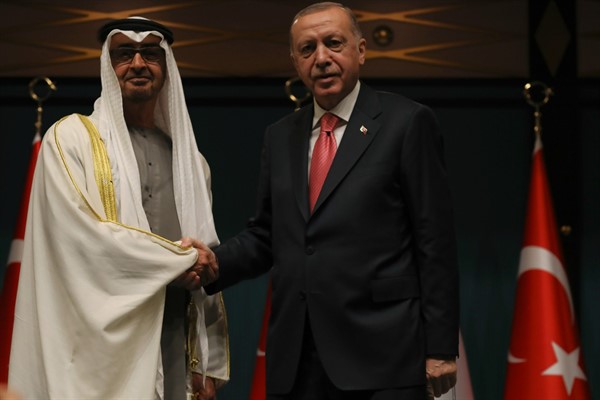Twenty years ago, the firebrand mayor of Istanbul, Recep Tayyip Erdogan, led his party to a landslide victory in a parliamentary election that would transform Turkish politics. What followed were two decades of uninterrupted control of the government by the Justice and Development Party, or AKP, which set out to prove that an Islamist party was not a threat, but could in fact move the country forward.
Soon after winning in 2002, the government launched one of its most intriguing plans: a new policy branded “zero problems with neighbors,” introduced by Ahmet Davutoglu, an obscure academic then serving as the government’s chief foreign policy adviser. “Zero problems” was not a “Kumbaya,” let’s-all-get-along notion. Instead, Davutoglu—who went on to become prime minister and lead the AKP before becoming one of Erdogan’s fiercest critics—argued that by maintaining good relations with nearby governments, Turkey could leverage its position as a bridge between Europe and Asia, between Europe and the Muslim world and between non-Arabs and Arabs.
But then, after Erdogan solidified his hold on power, moving from indirect control to openly leading as prime minister in 2003, Turkish politics started changing more rapidly. Before long, Davutoglu’s policy started unraveling. Erdogan gradually seized the levers of power and started pushing a vision of himself and Turkey as leaders of a changing Muslim world, often antagonizing Turkey’s neighbors and friends. Turkey’s policy seemed to reverse from “problems with no one” to “problems with everyone.”

